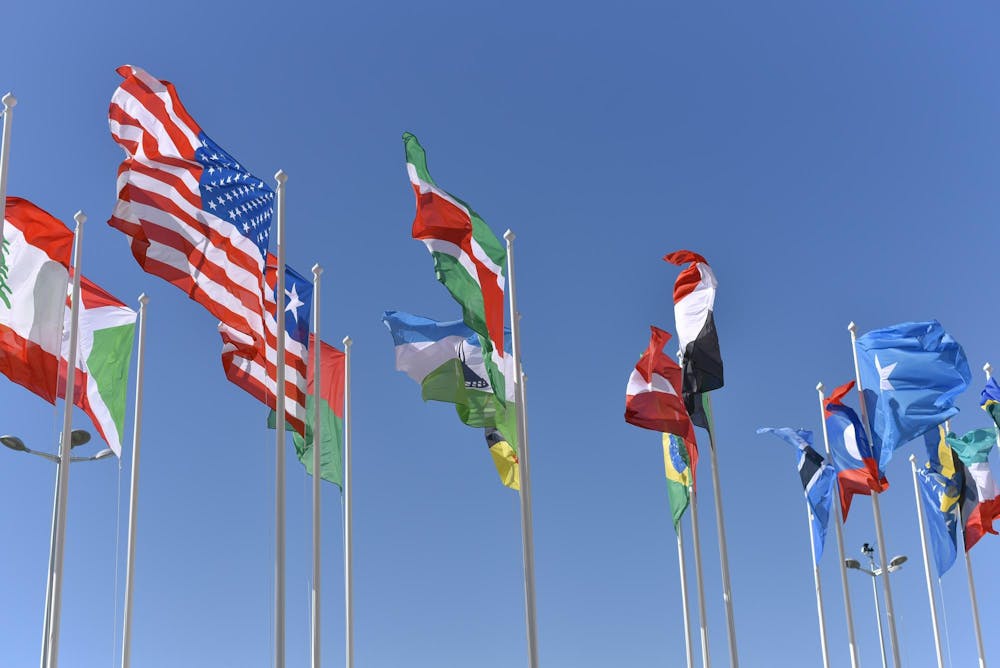Dear Comrade,
All the elements of a solution to the present problems of America have, at different times, existed in African thought or elsewhere really. Such is the place for the cross-pollination of ideas and the commonwealth of human knowledge. Eurocentrism and its cousins are thus all misguided positions. Our commitment should always remain to learn from whoever, whatever, wherever, as long as they are clear-headed.
This makes the Belles’ uncharitable response to the decision of their graduation speaker befuddling. Did President Conboy invite her to preach or to share from her treasure trove of life experiences immutable lessons that will be useful to the graduates? But all this de-platforming is a matter for another day. One must be secure in what one believes.
Thanks to Kellogg funding, I moved around South Africa a bit in the summer of 2023. One of my stops was the University of Johannesburg (UJ) where I attended a meeting of local progressive activists and former Zimbabwean nationals who were fighting against their exclusion by the Department of Home Affairs. The department was in the process of nullifying their Zimbabwean Exemption Permits (ZEP) which had allowed some Zimbabwean migrants to stay in South Africa and contribute for some as long as 20 years. Many legal channels that were previously available to citizenship in the country were also being foreclosed.
Additionally, an undisciplined vigilante group under the moniker “Operation Dudula” (Dudula is isiZulu for “drive/push back”) had emerged and inflicted grave injuries on these “illegals” to whom they attributed all the criminality, drug trade and underdevelopment in Black South Africa. They were also labeled some derogatory names like “Makwerekwere,” among others. So much for a subset of a people whose greatest gift to world culture, Kenneth Kaunda, said would be in the field of human relations.
This example is precisely why we are opposed to the general romanticization of civilizations. People are people wherever and whenever. The recent activities of U.S. Immigration and Customs Enforcement (ICE) resurrected this memory. How do we proceed? Let’s start with the brilliant son of Martinique — Frantz Fanon.
Fanon famously left us with a challenge to create a new man — one that European civilization had only only managed to evolve in theory. Anticipating Kaunda that the world would have to look southward for lessons in human relations and that the South would have to rise up to that challenge, he wrote: “For Europe, for ourselves and for humanity, comrades, we must turn over a new leaf, we must work out new concepts, and try to set afoot a new man.”
The new man had to be forged at a particular juncture in history, where new states were emerging from the womb of colonialism. The main challenge Fanon identified was in the mobilizing ideology with which these nascent nations had been midwifed. The genius is in the fact that he foresaw all this in 1963, when many of these political developments were still embryonic.
Contrary to some revisionists, Fanon definitely knew the limitations of bloodletting and what Lenin called “exaggerated revolutionism.” The young psychiatrist-cum-revolutionary exhorted: “But if nationalism is not made explicit, if it is not enriched and deepened by a very rapid transformation into a consciousness of social and political needs, in other words into humanism, it leads up a blind alley.”
Nationalism must be transformed into humanism — a social and political consciousness born of the acknowledgement of the universal needs of man and the fact that he is in fact man. The new man is the man conscious of both his local responsibilities and international duties. He is a man possessed with both a national and international awareness. He is thus both human and humanist — culturally and spiritually nourished, disabused of all distortionary visions, of all psychoses, chauvinisms and parochialisms.
Something needs clarifying here.
Despite the garb of national restoration and rejuvenation manifested in misleading misnomers like “Liberation Day tariffs,” the current administration and its head are not nationalist — they are pro-themselves and their interests — elitist at best. Nonetheless, they can still learn from Fanon. Fanon did in fact have Europe and America (where he would later die) in mind when he wrote. It is therefore in order for us to draw some lessons today. “What we want to do is to go forward all the time, night and day, in the company of Man, in the company of all men.” Is a world of shared prosperity and true mutuality imaginable?
The pope echoed this advocacy for humanism (stripped of its modernist colorings) in his letter to the Bishops of America when ICE was running rampage: “But worrying about personal, community or national identity, apart from these considerations, easily introduces an ideological criterion that distorts social life and imposes the will of the strongest as the criterion of truth."
In the meeting at UJ, a preacher born in Ghana, who had lived in the UK for a while before moving to South Africa where he married a local and established a family, was among the speakers. He had been effectively denied citizenship after 40 years of trying.
The meeting’s discussion featured arguments involving the political economy (for example, the fact that South Africa’s economy was a regional one), the contributing social and economic lives of the Zimbabweans in the communities they inhabited, anthropological debates (like the fact that these communities were related by language and ethnicity) and Pan-African debates (like the fact that all Africans were brethren divided by arbitrarily drawn borders as a legacy of the 1884-85 Berlin Conference). His contribution to the discussion was surprising. He simply asked: “Doesn't this land all belong to God?” I struggled with this argument in an environment where “logic” reigned, but upon later reflection, it begged a question we have asked before: Who owns the earth? I’m sure the pope would like him.
The irony, of course, of an administration that campaigned on “a Christian” platform — an argument that many members of the Notre Dame community interestingly fell for — is that the administration seemingly advanced non-humanist policies. This should not be lost on anyone. It should, however, dispel any confusion about how faith can easily be instrumentalized to attain political ends. Professor Campbell can speak better to this.
Back to Fanon: “If you really wish your country to avoid regression, or at best halts and uncertainties, a rapid step must be taken from national consciousness to political and social consciousness.”
This advice is timely for America primarily because of the international situation. Past American presidents, it has been said, got away with imperialism by being humble about the country’s imperialistic forays as its national interests were advanced. They did not need to announce it from the roof of the White House; they took the subterranean route.
The more brazenly and obscenely inward this country looks in the next four years, with no regard for any other, the more the rest of the world will become strategically less dependent. This will catalyze the process of shifting centers of gravity to new antagonistic alliances that will soon reify. In hindsight, we will say that Trumpian upfront-ism was a strategic miscalculation on his part — that assuming of course that any calculation whatsoever is taking place. That behavior, one of a spoiled kid who has power on the playground because he owns the ball, will backfire very rapidly when the other kids mobilize funds and buy their own ball. “Defensive nationalism,” to borrow Tandon’s terms, will be transformed into “aggressive nationalism.” The next head of state would have quite a cleaning job on his hands to restore American hegemony — that’s if he is not part of the MAGA movement.
Nevertheless, we maintain a principled spirit of revolutionary optimism — partly because we intend to act on the world. Hope after all must remain (1 Corinthians 13:13).
One can dismiss all this as the lamentations of the powerless rest of the world. That would be justified but myopic. Hubris can only result from a lack of appreciation of history and the possibilities that the future presents.
Pray for the president!
Olemo Gordon Brian is a senior at Notre Dame studying political economy. He is deeply interested in Africa's development and the emancipation of man. You can contact Olemo at bolemo@nd.edu.










